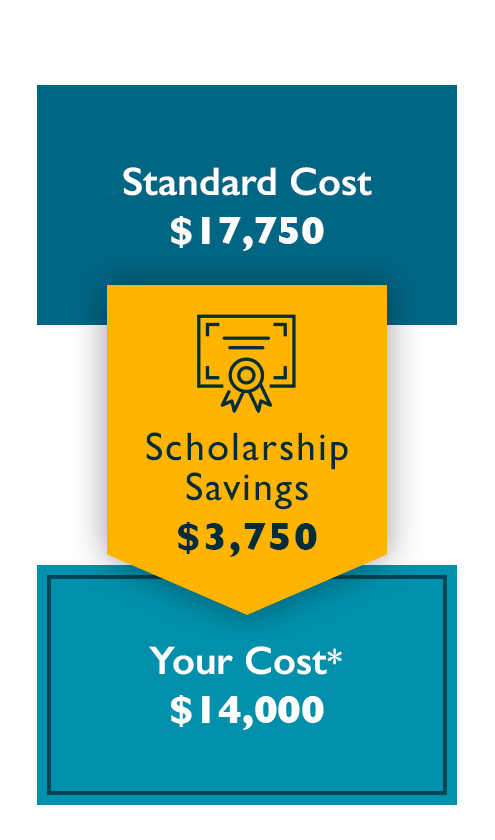Program Details
Curriculum
Completion Requirements
- 45 quarter credit hours
- Core courses (20 quarter cr.)
- Specialization courses (25 quarter cr.)
View the COMPLETE CURRICULUM PLAN.
Time to completion will vary by student, depending on individual progress and credits transferred, if applicable. For a personalized estimate of the number of your transfer credits that Walden would accept, call an Enrollment Specialist at 855-646-5286.
Admission Requirements
To be considered for this master’s program, you must have a bachelor’s degree from an accredited college or university, teaching experience, and meet the general admission requirements. All applicants must submit a completed online application and transcripts. Depending on program specialization, additional requirements may apply.
More information for international applicants.
| Curriculum Component | Requirements | Cost | amount |
|---|---|---|---|
| Tuition | 45 quarter credit hours | $375 per quarter hour | $16,875 |
| Program Fee | Per quarter | $175 | $875 |
| $17,750** | |||
| BELIEVE & ACHIEVE SCHOLARSHIP YOUR TUITION | -$3,750 $14,000* | ||
*Represents specialization other than Educational Leadership and Administration (International Non-Licensure), Educational Leadership and Administration (Principal Preparation; Licensure),minimum time to completion, and Believe & Achieve Scholarship. Your actual total program time and costs may vary. Believe & Achieve Scholarship savings based on current tuition. See Scholarship Details for more information.
**Tuition reflects the minimum time to completion. Time to completion varies by student, depending on individual progress and credits transferred, if applicable. Tuition and time to complete may be reduced if transfer credits are accepted, or if you receive grants, scholarships or other tuition reductions. Walden may accept up to 20 transfer credits. For a personalized estimate of the number of your transfer credits that Walden would accept, call an Enrollment Specialist at 844-529-2438.
Tuition and fees are subject to change. Books and materials are not included and may cost between $1,000 and $1,400.
Program Outcomes
Learning Outcomes
Graduates of this program will be prepared to:
- Convey the major concepts, principles, theories, laws, and interrelationships of biology and supporting fields.
- Convey the major concepts, principles, theories, laws, and interrelationships of earth and space science and supporting fields.











